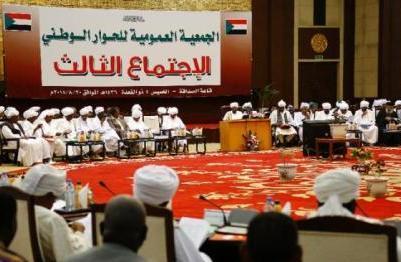Sudan sets up dialogue follow up implementation body
December 7, 2016 (KHARTOUM) – Sudan’s ruling National Congress Party (NCP) on Wednesday said the Higher Coordination Committee to Follow Up on the Implementation of the Dialogue Outcome has been endorsed after adding some new members.

NCP political secretary Hamid Mumtaz on Wednesday said the Future Forces of Change (FFC) led by Al-Tayeb Mustafa, Umma Party led by Mubarak al-Fadil al-Mahdi and the Alliance of National Forces led by Mustafa Mahmoud have been added to the new committee.
He told the semi-government Sudan Media Center (SMC) that the new members have been notified, saying no presidential decree was needed to approve the inclusion of additional members to the committee after they were agreed upon among the political parties participating in the dialogue.
However, the chairman of the dialogue support body, Ammar Al-Sajad, said they refuse the NCP decision to approve the new committee and threatened to withdraw from the national dialogue.
In a press release extended to Sudan Tribune on Wednesday, Al-Sajad demanded President Omer al-Bshir to immediately interfere to stop the decision, describing the decision to dissolve the 7+7 committee as “serious move”.
He said the move constitutes a clear violation of the Dialogue Roadmap, pointing the NCP seeks to disavow its commitments towards the implantation of the dialogue outcome.
Al-Sajad further stressed the 7+7 committee should remain in place until the end of the transitional period according to the Dialogue Roadmap.
Since January 2014, al-Bashir has been leading a national dialogue process whose stated aims are to resolve the armed conflicts, achieve political freedoms, alleviate poverty and the economic crisis, and address the national identity crisis.
In April 2014, he held roundtable meetings with opposition parties, created the 7+7 committee with some opposition and government-allied parties to oversee the process, and drew up a “roadmap” and timeframe for the national dialogue.
Last October, the political forces participating at the national dialogue concluded the process by signing the national document which includes the general features of a future constitution to be finalized by transitional institutions.
The opposition groups boycotted the process because the government didn’t agree on humanitarian truce with the armed groups and due to its refusal to implement a number of confidence building measures.
